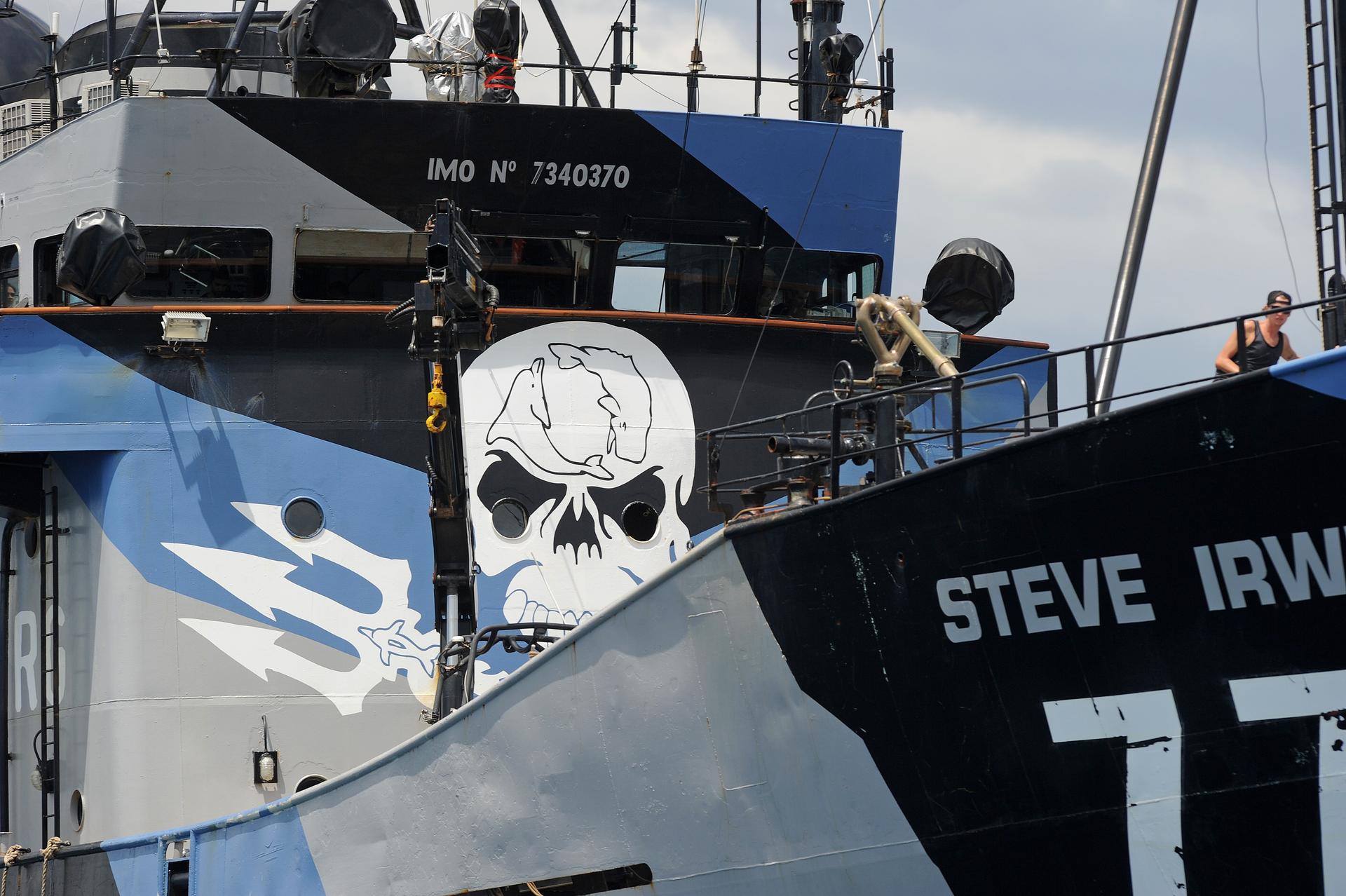Japanese whaling ships have left the Southern Ocean, says Sea Shepherd
The ship Steve Irwin, from the fleet of environmental activist group Sea Shepherd, sits at anchor in Gage Roads off Fremantle near Perth on December 7, 2011.
Anti-whaling group Sea Shepherd claims that Japanese whaling vessels have left the Southern Ocean whale sanctuary and are heading north, likely towards Indonesia and than to home.
Sea Shepherd captain Paul Watson told ABC News that he is "80 percent certain" that the whalers are on a course for home, but four of his ships are continuing to follow the fleet.
More from GlobalPost: Japanese turn against whaling
According to Sea Shepherd, their ships have chased the Japanese scientific whaling vessels since they arrived in the Southern Ocean on Jan. 28, crossing 6,240 miles of territory westward, and with two direct confrontations between the warring groups to prevent the killing of whales.
The Sea Shepherd group also attempted to prevent the " illegal fueling of the Nisshin Maru from the Sun Laurel."
Watson claimed a successful year for his group to SBS News: "Sea Shepherd has saved 900 or so whales this year. Sea Shepherd has effectively ruined this gruesome killing business of the Japanese fleet. And Sea Shepherd is building. It's got huge and popular support around the world."
Last year, Japanese whalers killed 267 whales, but this year, managed to kill "no more than 75," according to AFP — failing to reach their target of 935 Minke whales and up to 50 fin whales set by the Japanese Institute for Cetecean Research.
The public confrontation between the whalers and Sea Shepherd's environmentalists have made international headlines since the whalers first set a course for the Southern Ocean, with both sides claiming that the other has taken violent actions.
More from GlobalPost: Minke whale allegedly harpooned in Australian waters
The Japanese government heavily subsidizes the whaling fleet with over $320 million since 1987 at cost to the taxpayer, an earlier GlobalPost report noted, while Japanese consumption of whale meat continues to plummet.
50 percent of Japanese surveyed said they had no opinion on the whaling practice, while 26 percent were in support and 18.5 percent opposed.
Despite condemnation from Australia and international environmental groups, Japanese minister for agriculture, forestry and fisheries Yoshimasa Hayashi said that he didn't "think there will be any kind of an end for whaling by Japan," according to CNN, noting Japan's long history and tradition of whaling.
